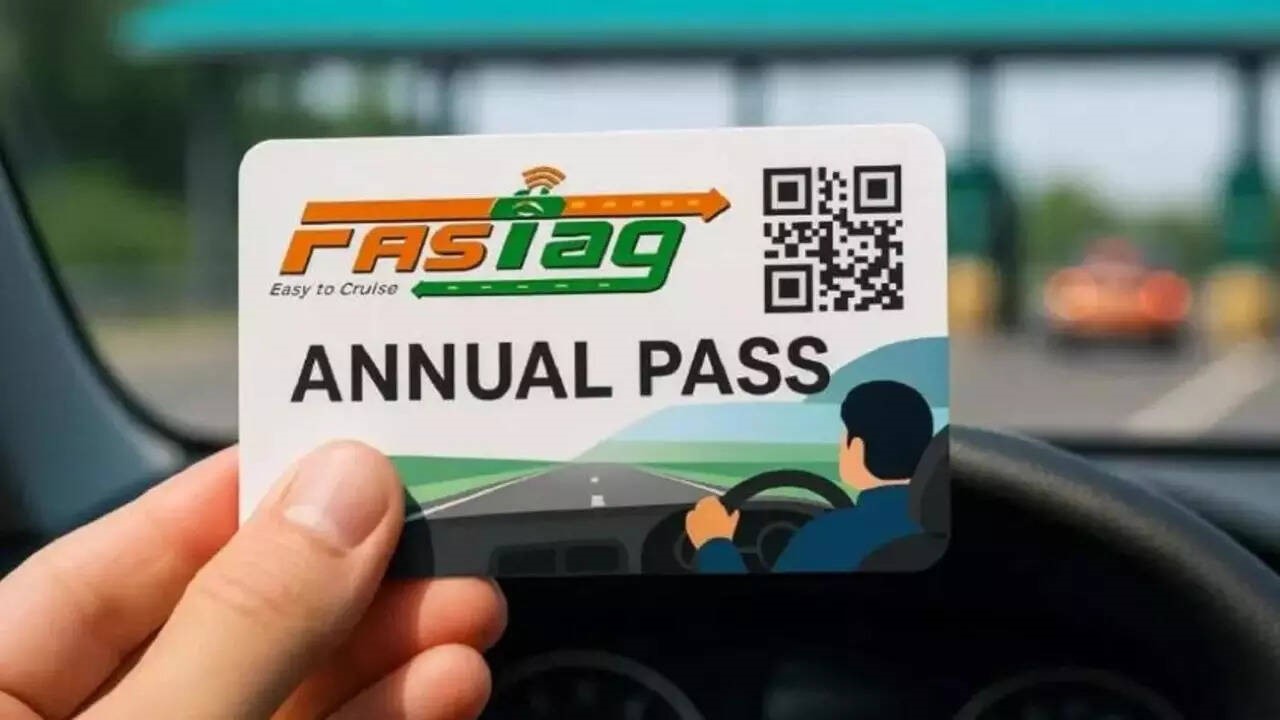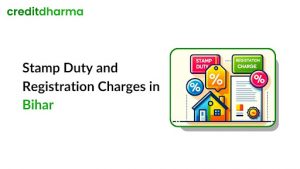The National Highways Authority of India (NHAI) has rolled out a new FASTag scheme for the financial year 2025–26, offering an annual pass worth Rs 3,000. This move aims to simplify toll collection for frequent highway users while ensuring a smoother, cashless travel experience. The new plan, titled the “FASTag Annual Pass,” is expected to bring major relief to daily commuters, logistics operators, and local vehicle owners who frequently use specific toll routes.
In this blog, we’ll explore every detail about this initiative — from the application and activation process to the FASTag new rules 2025 annual charges, benefits, and revised norms. We’ll also discuss how this impacts local commuters under the FASTag rules for local vehicles, what the new FASTag rule signifies for 2025–26, and how the FASTag new rules 2025 minimum balance requirements are changing.
Let’s break it all down systematically.
What Is the FASTag Annual Pass for Rs 3,000 in 2025–26?
The FASTag Annual Pass is a prepaid electronic toll collection plan that allows unlimited or limited toll transactions (depending on the category) for a yearly fee of Rs 3,000. Designed to minimize long queues at toll plazas and reduce dependency on cash, this initiative marks a shift towards digitized toll management across Indian highways.
For many users — especially those traveling frequently on specific stretches — this plan helps save both money and time. Instead of maintaining a recurring balance or topping up regularly, users can now opt for a one-time annual fee that covers toll expenses for 12 months.
Why Did the Government Introduce the Rs 3,000 FASTag Annual Pass?
The Rs 3,000 pass is a result of several policy revisions under FASTag new rules 2025. Over the years, toll management through FASTag has grown exponentially, but there were concerns about congestion, misuse of local exemptions, and inconsistent toll deductions.
The government, therefore, introduced a more structured system to:
- Reduce manual intervention at toll booths.
- Simplify payments for frequent travelers.
- Offer cost benefits for those using highways daily.
- Regulate FASTag new rules 2025 annual charges for transparency.
- Enhance compliance by linking vehicle usage data to the NHAI digital monitoring system.
How Can You Apply for the FASTag Annual Pass in 2025–26?
The process to apply for the FASTag Rs 3,000 Annual Pass is straightforward and can be done both online and offline.
Online Application Steps:
- Visit the official FASTag website or your respective bank’s FASTag portal (like ICICI, HDFC, SBI, Paytm, or Airtel Payments Bank).

- Log in with your FASTag credentials.

- Navigate to “Annual Pass” or “Subscription Plan.”
- Select the Rs 3,000 plan for 2025–26.
- Verify your vehicle registration details.
- Pay the Rs 3,000 fee using net banking, debit/credit card, or UPI.
- Receive a confirmation message and digital receipt.
Offline Application Steps:
- Visit any authorized toll plaza or bank branch offering FASTag services.
- Provide your vehicle details and KYC documents (RC, Aadhaar, PAN).
- Pay the Rs 3,000 annual fee.
- Get your FASTag updated with the new plan and receive an activation SMS.
How to Activate the Rs 3,000 FASTag Annual Pass?
Once payment is made, the activation is usually automatic within 24 hours. However, if not activated, users can manually initiate it through the FASTag portal.
Manual Activation Steps:
- Log in to your FASTag account.
- Go to the “Manage Tag” section.
- Click on “Activate Annual Pass.”
- Enter your transaction ID and vehicle number.
- Confirm activation — a success message will be sent via SMS and email.
What Are the Benefits of the FASTag Annual Pass in 2025–26?


The Rs 3,000 pass offers multiple benefits beyond toll savings.
- Fixed Annual Expense:
Instead of worrying about per-trip toll deductions, users can travel freely for an entire year on designated routes. - Seamless Travel:
Faster toll clearance reduces traffic congestion and wait times. - Hassle-Free Transactions:
No need to maintain or monitor minimum balance frequently. - Cost Efficiency:
Regular commuters may save up to 25–30% annually compared to per-trip toll rates. - Transparency:
Every transaction and travel record is digitally available via your FASTag dashboard.
What Are the FASTag New Rules 2025 Annual Charges?

Under the FASTag new rules 2025, the NHAI has standardized annual pass charges based on vehicle category and route usage. The Rs 3,000 annual pass applies to personal vehicles (LMV category).
- Personal/Private Cars: Rs 3,000 annual pass
- Light Commercial Vehicles (LCV): Rs 5,000 annual pass
- Heavy Commercial Vehicles: Rs 10,000 annual pass
These annual fees are uniform across participating toll plazas nationwide.
Additionally, the FASTag new rules 2025 annual charges ensure that all users receive a single digital receipt reflecting their subscription validity until March 31, 2026.
What Are the FASTag Rules for Local Vehicles?
Local vehicles, particularly those registered near toll plazas, have been given special consideration under the FASTag rules for local vehicles.
- Locals can apply for concessional FASTag passes through the respective toll authority.
- The annual fee may be lower (between Rs 500–1,500) depending on toll categorization.
- Proof of residence within 10 km of the toll plaza is mandatory.
- Local passes are non-transferable and linked to a single vehicle only.
This structure prevents misuse of the local exemption category while offering fair benefits to genuine daily commuters.
What Is the New FASTag Rule for 2025–26?
The new FASTag rule introduced in 2025–26 primarily focuses on stricter compliance and digital efficiency. Here’s what’s changed:
- Mandatory KYC Update: Users must complete full KYC verification to avoid deactivation.
- Unified Recharge Platform: FASTag wallets are now interoperable across all banks.
- Automatic Deactivation for Dormancy: Tags unused for 90 days will be temporarily suspended.
- Linked Payment Ecosystem: Integration with NPCI and DigiYatra for seamless payment experience.
- Minimum Balance Enforcement: New threshold limits introduced (explained below).
What Are the FASTag New Rules 2025 Minimum Balance Requirements?

According to the FASTag new rules 2025 minimum balance update, NHAI has set a base balance requirement to prevent transaction failures.
- For Cars/LMVs: Rs 150 minimum balance.
- For LCVs: Rs 250 minimum balance.
- For Heavy Vehicles: Rs 500 minimum balance.
Users subscribing to the Rs 3,000 annual pass are exempt from maintaining an additional balance for their registered routes. However, outside designated routes, tolls will still require a sufficient wallet balance.
How Does the Rs 3,000 FASTag Annual Pass Save Money?
Let’s consider an example:
If a commuter spends Rs 150 per day on tolls (to and fro), they would typically spend over Rs 54,000 annually. With the Rs 3,000 annual pass, this cost drastically reduces, offering massive savings for daily travelers.
Even for occasional users, the pass brings predictability and cost control — no surprise deductions or recharge hassles.
How Long Is the FASTag Annual Pass Valid?

The validity of the Rs 3,000 annual pass extends for one full financial year (April 1, 2025 – March 31, 2026). Users can renew their pass annually, and renewal reminders are sent 30 days before expiry.
If renewed before expiry, the new validity starts immediately after the old one ends, ensuring uninterrupted access.
Can the Annual Pass Be Transferred Between Vehicles?
No. The FASTag Annual Pass is strictly non-transferable. Each pass is digitally linked to a single vehicle registration number and cannot be reassigned. Attempting to use the tag for another vehicle may result in deactivation and penalties under the new FASTag rule.
What Happens If You Don’t Renew the Annual Pass?
Failure to renew before the validity expires will convert your FASTag account back to the standard pay-per-use model. Toll deductions will resume per transaction, and users will need to maintain the FASTag new rules 2025 minimum balance again.
What Are the Penalties for Violating FASTag Rules?

Violations such as unpaid balances, multiple tag misuse, or using fake credentials may result in:
- Tag suspension.
- Monetary penalties.
- Blacklisting of the vehicle from NHAI’s toll network.
The government has intensified enforcement in 2025 under the FASTag new rules 3,000 rupees policy framework to ensure full compliance.
Conclusion
The FASTag Annual Pass for Rs 3,000 in 2025–26 represents a major step toward simplifying road travel across India. With enhanced transparency, reduced congestion, and digital efficiency, this plan benefits both frequent commuters and the environment by cutting idle fuel consumption. Whether you’re a daily traveler or an occasional user, upgrading to the annual pass can bring convenience and cost savings alike.
At Housiey, we appreciate infrastructure initiatives that make life smoother for Indian citizens — much like our own mission to make home buying simple, transparent, and broker-free.
Explore our blog on “Samruddhi Mahamarg” to understand how India’s expressways are transforming connectivity and growth across regions.







